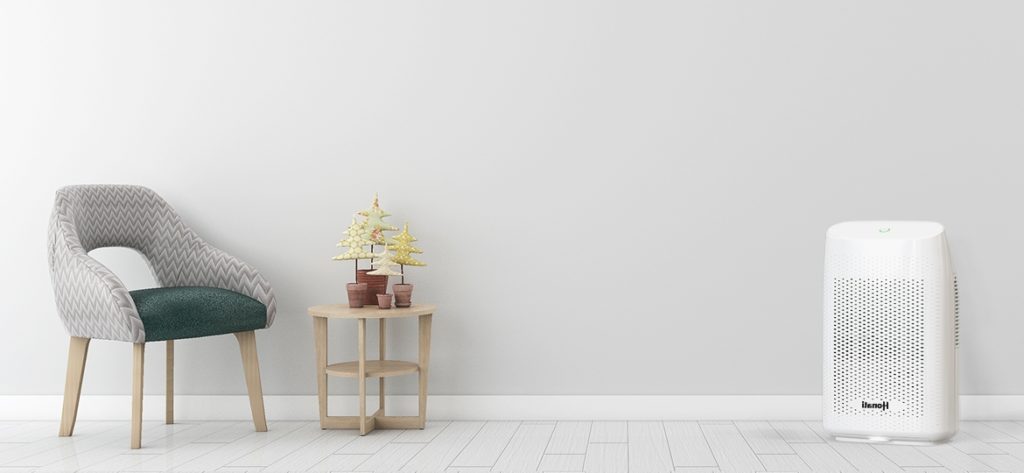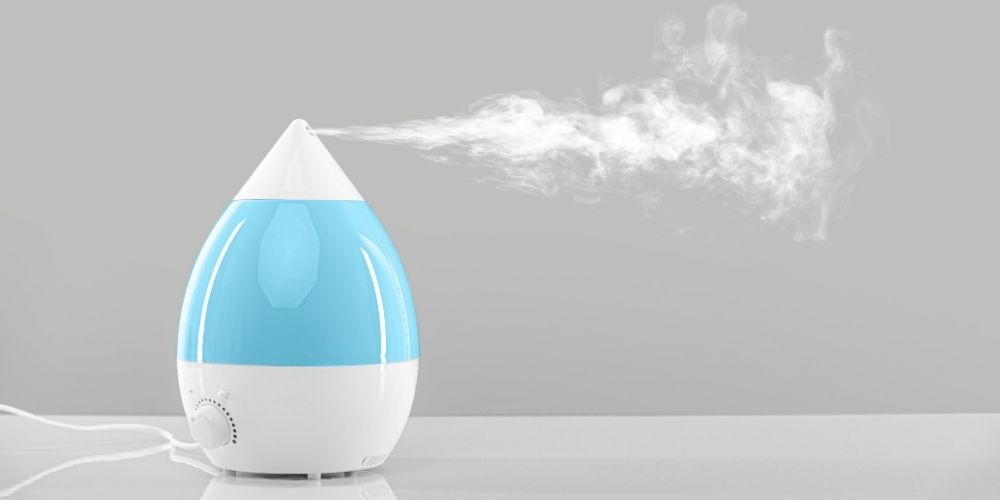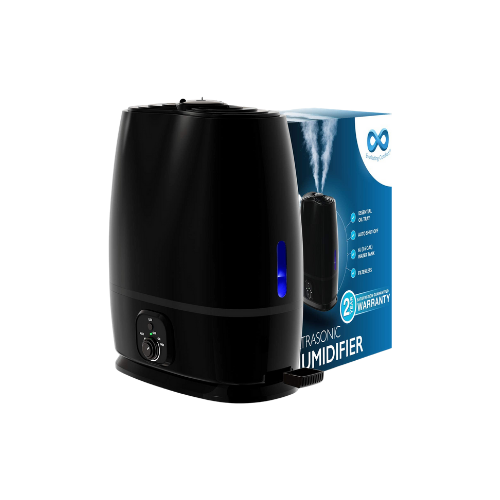Dehumidifier or humidifier for asthma?
3 Key Takeaways:
🚀 A dehumidifier removes excess moisture from the air and regulates the humidity level at the ideal temperature.
🚀 Increased humidity levels and moisture content in the indoor air become a breeding ground for mold and mold spores, mildew, dust mites, and other allergens.
🚀 When it comes down to humidifiers or dehumidifiers for asthma, both appliances play an equally important role in managing asthma by regulating humidity levels.
Asthma is a serious chronic respiratory disease that has no cure.
Statistics say 1 in 13 people are found to be asthma sufferers around the world. Millions of people in the United States of America are also affected by asthma.
Although it is incurable, there are a few safety measures that can be taken to prevent those conditions that might lead to an asthma attack, like using a humidifier or dehumidifier to maintain the right humidity levels in your living space, minimising the amount of exposure to air pollution, using air purifiers to improve indoor air quality, avoiding the use of tap water for consumption, making use of steam vaporisers, and more.
A person is said to be under an asthma attack when they have inflamed airways. An attack is characterised by tightness in the chest, difficulty in breathing and shortness of breath, and coughing and wheezing. There are many different allergens that could lead to asthma attack flare-ups, and this could be similar to allergy symptoms in most people.
However, this gives no reason to neglect asthma, immediate medical help is necessary. The amount of impact that it brings about in the airways of the lungs might explain the severity of an attack and the impending treatment. Most people with asthma are known to avoid physical activities and conditions that act as triggers. Asthma patients usually carry quick-relief inhalers and medication to be prepared to handle any unforeseen asthma attacks.
As aforementioned, allergies and asthma can definitely be controlled by using a humidifier or dehumidifier. Since these devices are proven to keep your home safeguarded against allergens that may cause any respiratory health problems, it is advised that you put them to right use to tackle and get rid of asthma symptoms. Know more on whether to use dehumidifier or humidifier for asthma.
Is a dehumidifier good for breathing?

A dehumidifier is indeed recommended to keep the indoor air quality clean, fresh, and free from allergens (which can aggravate asthma symptoms). What a dehumidifier does is that it removes excess moisture from the air and regulates the humidity level at the ideal temperature. Increased humidity levels and moisture content in the indoor air become a breeding ground for mold and mold spores, mildew, dust mites, and other allergens.
The humid air apart from encouraging mold growth, also makes it difficult to inhale and exhale. When the air moisture is increased, it becomes heavy, and leads to difficulty in breathing symptoms. This might include shortness of breath, chest congestion, blocked nasal passage, etc. When left unattended will might also develop allergies.
Dehumidifiers are designed to bring the indoor humidity to a healthy level by acting on the moist air. The excess water content from the air is removed by passing it through the coils within the dehumidifier, and the extracted water is collected in a container outside of the dehumidifier through the process of condensation. During this process, allergens are also trapped by the air filters. The device sends back into the room dry air that is fresh, moisture-free, and also free from allergens.
When high humidity is reduced by extracting all the excess moisture in the air, the environment will contain dry air (in the right measure). This lack of water content nullifies the favorability for mold growth and its sustenance, for allergens to thrive, for mold spores to spread, and dust mites to flourish.
This overall change in water vapour level not only makes your home comfortable to stay in, but it is also healthy to breathe in. This is why many homeowners prefer to use a dehumidifier for their homes. It is an assured way of keeping allergies and their symptoms at bay, and preventing asthma attacks.
What does a humidifier do for your asthma?

A humidifier can help to keep allergies and asthma flare-ups away as well. The function of a humidifier is to add water vapour to the atmosphere in your home or the place it is kept. The addition of water vapour will improve the moisture content in the air around you and stabilise the humidity levels; bringing it to the ideal relative humidity level.
When you have dry air around you, it can cause dry skin and nasal passage, irritation in the airways, leading to allergies, and even aggravate asthma symptoms. When the indoor humidity level is maintained using humidifiers, you get to relax in a comfortable environment that is free from allergens and also safe to breathe in.
The reason for caution here is to use the device properly. A humidifier may do you harm if the device is not monitored or maintained. This is because, humidifiers are very much capable of adding excess moisture into the air which will lead to high humidity.
An environment that has high humidity is home to allergens and causes hindrance to the lungs and skin breathing. Therefore, keep a close eye on how much moisture the humidifier adds to the air. Ensure that the device is kept clean, to prevent it from spreading air bore diseases and allergens. A humidifier can surely be of service to keep allergies and asthma attacks away when one learns to put it to use correctly.
So which humidifier should you use?
Before you purchase a humidifier for your home, it is better to be clear on their types and difference. There are two types of humidifiers; warm mist and cool mist.
Each type is equally effective in carrying out its function; the difference lies in the temperature of the mist. Cool mist humidifiers are advised when one wants to treat breathing difficulties or asthma in children. It is also considered to be a safer option for children, in the event of spills.
Humidifier or Dehumidifier for bronchitis?
If you were to ask which one among these two is recommended for bronchitis; the answer is both of them. Each has their own set of advantages that makes them a good option. When a humidifier adds moisture to the air continually, it will help those people who can make use of some soothing in their bronchial tubes. It will aid to calm down allergy or bronchitis symptoms until the virus leaves the body. It will also help in releasing the buildup of discolored mucous and relive congestion.
A dehumidifier on the other hand keeps allergens away which can trigger or aggravate bronchitis and its symptoms. For this reason, both dehumidifier and humidifier can be of great service to prevent and treat bronchitis.
Humidifier or Dehumidifier for a stuffy nose?

A stuffy nose can be a symptom that accompanies a common allergy and might take a couple of days to settle. One way of handling stuffy nose is to use a humidifier. Adding water vapour to the air will help to relieve blockage in the nose or any congestion. Hence the answer is ‘Yes, a humidifier will help with the stuffy nose’. However, this isn’t the case with dehumidifiers. Although high humidity makes it difficult to breathe, but too much removal of moisture and dry air could worsen a stuffy nose.
Which is the ideal humidity level to ease breathing problems?
It is recommended that you maintain the humidity level between 30% and 50% in your home, workplace, or anyplace in need of humidity level regulation. This level is the most comfortable to stay in, irrespective of air conditioning systems. You can avoid and ease breathing problems at this level. High humidity will lead to bacterial and fungal growth, damage to property, and respiratory disease. Low humidity on the other hand could lead to watery and dry eyes, irritation in the nasal passage, dry skin, etc.
Which is the best humidifier for asthma?
Everlasting Comfort Cool Mist Humidifier
This cool-mist humidifier comes with a 1.6 gallons reservoir. This ultrasonic humidifier for bedrooms can cover up to 500 square feet, lasting for 50 straight hours. This capacity from the Everlasting Comfort Humidifier, makes it a great choice for large rooms, apartments, offices, nurseries, or college dorms.
It has an Auto Shut Down facility that can shut down the dehumidifier automatically when the reservoir is out of water. This feature is essential to prevent damage to the unit and device. You can have the humidity levels in your home regulated, not just quickly, but silently also with its under 30 dB operation. Additional attractive feature of this humidifier is an essential oil diffuse tray.
Along with humidity level control, you can simultaneously get essential oil diffused into the room by simply adding any aromatic oil of your choice on the tray provided. There is also a blue LED night light that is perfect for nurseries. Moreover, this ultrasonic humidifier is filter less, which means you will save on ongoing replacement costs. The product also comes with a complete 2-year replacement policy.
Pros and Cons of Everlasting Comfort Humidifier:
1. Perfect small design for small spaces
2. Silent operation
3. Regulates high humidity levels in your home with ease
4. Essential oil diffuser is added bonus
5. Durability is not as expected
Wrapping Up
When it comes down to humidifiers or dehumidifiers for asthma, hope you are clear on the functions of each type. Remember it is simple to regulate humidity levels with both the appliances and they both play an equally important role in managing asthma. Let us know which humidifiers or dehumidifiers work best for your home.
